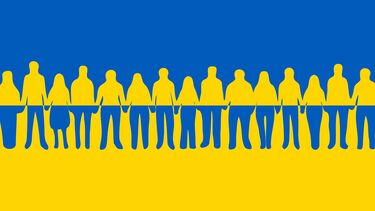Beyond Humanitarian Relief: The (Changing) Role of Human Service Organisations during the War in Ukraine
This British Academy-funded project [Grant Number: MFSS24\240036] examines Human Service Organisations during the ongoing war in Ukraine.

Project overview
This British Academy-funded project [Grant Number: MFSS24\240036] examines Human Service Organisations during the ongoing war in Ukraine. The project aims to help us understand how such organisations, specifically those that provide service to people (for example, welfare services), have/had to change what they are doing during the ongoing war. Human Service Organisations (HSOs) are often at the coalface of crisis like war and play a vital part in supporting people both during war but also peacetime. This makes HSOs key to enduring societal resilience. However, during war, HSOs might not be able to achieve their aims and pursue their activities as they have done a priori. The displacement and human suffering from war also changes the dynamics that shape HSOs belonging and acceptance within their communities and society more widely. The way such actors can contribute to a society affected by war needs to be understand further. Such insight will not only enable the project to deepen our understanding of HSO but also enable a more nuanced understanding of how such organisations can be supported during the current war.
Background and research study
In their pursuit of their aims, HSO need to focus on delivering/providing a service (their raison d'être), their (financial) sustainability, and often (indirectly) shaping the policy that affects their constituencies. To do so HSOs depended on resources such as those provided by state authorities/institutions (both central, regional, and local), international donor organisations, philanthropic support from foundations and individuals (domestic or international), or they engage in commercial activities to support their work. However, war and military conflict provide specific challenges for such organisations with regards to what they do/can do and how they can support their work. Local resources are rightly diverted to the war effort, commercial activities might be considered as profiteering from suffering and no longer be acceptable. Hence, HSO might find it challenging to balance their aims of delivering, influencing policy, and ensuring their own (economic) sustainability. Legitimacy, that is the social/societal acceptance of HSO, is a crucial tenant of being able to achieve. However, the dynamics of an ongoing war create uncertainties around how HSO can gain, retain, and manage their societal acceptance, with what they do (activities and practices) playing and important role. Therefore, this project studies how HSOs fare, adapt, or emerge during war and military conflict. To do so the project will use a qualitative approach to collect data from HSO as well as stakeholders (those that provide resources and those that do not). Using qualitative data analysis methods, the project will look at what HSO do, the dynamics shaping what they do, and the perceptions this creates in order to shed a light on their legitimacy/legitimation efforts. In turn this will provide important insight for stakeholders, such as national and international policymakers, donors, or activists.
Regular updates on the project can be found on the project page.


